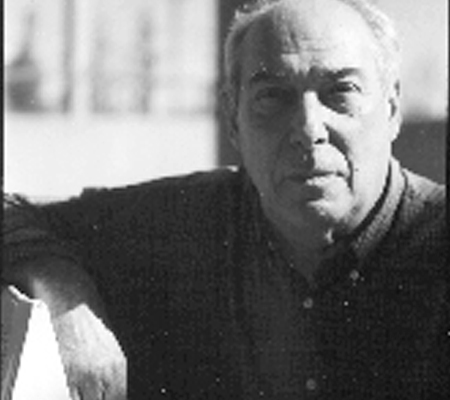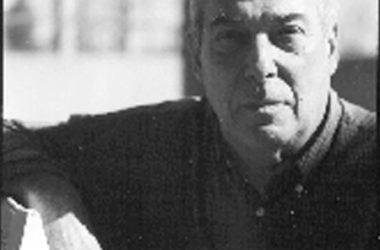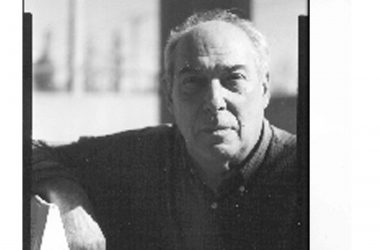By Noel Ignatiev
Talk given at the Conference “The Making and Unmaking of Whiteness” University of California, Berkeley, April 11-13, 1997
Now that White Studies has become an academic industry, with its own dissertation mill, conference, publications, and no doubt soon its junior faculty, it is time for the abolitionists to declare where they stand in relation to it. Abolitionism is first of all a political project: the abolitionists study whiteness in order to abolish it.
Various commentators have stated that their aim is to identify and preserve a positive white identity. Abolitionists deny the existence of a positive white identity. We at Race Traitor, the journal with which I am associated, have asked some of those who think whiteness contains positive elements to indicate what they are. We are still waiting for an answer. Until we get one, we will take our stand with David Roediger, who has insisted that whiteness is not merely oppressive and false, it is nothing but oppressive and false. As James Baldwin said, “So long as you think you are white, there is no hope for you.”
Whiteness is not a culture. There is Irish culture and Italian culture and American culture—the latter, as Albert Murray pointed out, a mixture of the Yankee, the Indian, and the Negro (with a pinch of ethnic salt); there is youth culture and drug culture and queer culture; but there is no such thing as white culture. Whiteness has nothing to do with culture and everything to do with social position. It is nothing but a reflection of privilege, and exists for no reason other than to defend it. Without the privileges attached to it, the white race would not exist, and the white skin would have no more social significance than big feet.
Before the advocates of positive whiteness remind us of the oppression of the white poor, let me say that we have never denied it. The United States, like every capitalist society, is composed of masters and slaves. The problem is that many of the slaves think they are part of the master class because they partake of the privileges of the white skin. We cannot say it too often: whiteness does not exempt people from exploitation, it reconciles them to it. It is for those who have nothing else.
However exploited the poor whites of this country, they are not direct victims of racial oppression, and “white trash” is not a term of racial degradation analogous to the various epithets commonly applied to black people; in fact, the poor whites are the objects of race privilege, which ties them to their masters more firmly than did the arrows of Vulcan bind Prometheus to the rock. Not long ago there was an incident in Boston in which a well- dressed black man hailed a taxi and directed the driver to take him to Roxbury, a black district. The white cab driver refused, and when the man insisted she take him or call someone who would, as the law provided, she called her boyfriend, also a cabdriver, on the car radio, who showed up, dragged the black man out of the cab and called him a “nigger.” The black man turned out to be a city councilman. The case was unusual only in that it made the papers. Either America is a very democratic country, where cab drivers beat up city councilmen with impunity, or the privileges of whiteness reach far down into the ranks of the laboring class.
We are anti-white, but we are not in general against the people who are called white. Those for whom the distinction is too subtle are advised to read the speeches of Malcolm X. No one ever spoke more harshly and critically to black people, and no one ever loved them more. It is no part of love to flatter and withhold from people what they need to know. President Samora Machel of Mozambique pointed out that his people had to die as tribes in order to be born as a nation. Similar things were said at the time Afro-Americans in mass rejected the term “Negro” in favor of “black.” We seek to draw upon that tradition, as well as—we do not deny it—an even older tradition, which declares that a person must die so that he or she can be born again. We hold that so-called whites must cease to exist as whites in order to realize themselves as something else; to put it another way: white people must commit suicide as whites in order to come alive as workers, or youth, or women, or whatever other identity can induce them to change from the miserable, petulant, subordinated creatures they now are into freely associated, fully developed human subjects.
The white race is neither a biological nor a cultural formation; it is a strategy for securing to some an advantage in a competitive society. It has held down more whites than blacks. Abolitionism is also a strategy: its aim is not racial harmony but class war. By attacking whiteness, the abolitionists seek to undermine the main pillar of capitalist rule in this country.
If abolitionism is distinct from White Studies, it is also distinct from what is called “anti-racism.” There now exist a number of publications, organizing programs and research centers that focus their energies on identifying and opposing individuals and groups they call “racist.” Sometimes they share information and collaborate with official state agencies. We stand apart from that tendency. In our view, any “anti-racist” work that does not entail opposition to the state reinforces the author- ity of the state, which is the most important agency in maintaining racial oppression.
Just as the capitalist system is not a capitalist plot, so racial oppression is not the work of “racists.” It is maintained by the principal institutions of society, including the schools (which define “excellence”), the labor market (which defines “employment”), the legal system (which defines “crime”), the welfare system (which defines “poverty”), the medical industry (which defines “health”), and the family (which defines “kinship”). Many of these institutions are administered by people who would be offended if accused of complicity with racial oppression. It is reinforced by reform programs that address problems traditionally of concern to the “left” — for example, federal housing loan guarantees. The simple fact is that the public schools and the welfare departments are doing more harm to black children than all the “racist” groups combined.
The abolitionists seek to abolish the white race. How can this be done? We must admit that we do not know exactly, but a look at history will be instructive.
When William Lloyd Garrison and the original abolitionists began their work, slavery was the law of the land, and behind the law stood the entire machinery of government, including the courts, the army, and even the post office, which banned anti-slavery literature from Southern mail. The slave states controlled the Senate and Presidency, and Congress refused even to accept petitions relating to slavery. Most northerners considered slavery unjust, but their opposition to it was purely nominal. However much they disapproved of it, the majority “went along,” as majorities normally do, rather than risk the ordinary comforts of their lives, meager as they were.
The weak point of the slave system was that it required the collaboration of the entire country, for without the support of the “loyal citizens” of Massachusetts, the slaveholders of South Carolina could not keep their laborers in bondage (just as today without the support of the law-abiding, race discrimination could not be enforced). The abolitionists set to work to break up the national consensus. Wendell Phillips declared that if he could establish Massachusetts as a sanctuary for the fugitive, he could bring down slavery. They sought to nullify the fugitive slave law, which enlisted the northern population directly in enforcing slavery. They encouraged and took part in attempts to rescue fugitives—not, it must be pointed out, from the slaveholders, but from the Law. In all of this activity, the black population took the lead. The concentrated expression of the abolitionist strategy was the slogan, “No Union with Slaveholders,” which was not, as has often been charged, an attempt to maintain their moral purity but an effort to break up the Union in order to establish a liberated zone adjacent to the slave states. It was a strategy that would later come to be known as dual power, and neither Garrison’s pacifism nor his failure to develop a general critique of the capitalist system should blind us to its revolutionary character.
John Brown’s attack on Harpers Ferry was not an aberration but the logical application of the abolitionist strategy. The slaveholders retaliated for it by demanding new guarantees of loyalty from the federal government, including a stronger fugitive slave law, reopening of the slave trade, and especially the expansion of slavery into the territories.
As Phillips said, Brown “startled the South into madness,” precipitating a situation where people were forced to choose between abolition and the domination of the country as a whole by the slaveholders. It was not the abolitionists but the slaveholders who, by the arrogance of their demands, compelled the north to resist. From Harpers’ Ferry, each step led inexorably to the next: Southern bullying, Lincoln’s election, secession, war, blacks as laborers, soldiers, citizens, voters. The war that began with not one person in a hundred foreseeing the end of slavery was transformed within two years into an anti- slavery war, and a great army marched through the land singing, “As He died to make men holy, let us fight to make men free.”
The course of events can never be predicted in other than the broadest outline, but in the essentials, history followed the path charted by the abolitionists. As they foresaw, it was necessary to break up the Union in order to reconstitute it without slavery. When South Carolina announced its secession, Wendell Phillips was forced into hiding to escape the Boston mob that blamed him; two years later he was invited to address Congress on how to win the war. He recommended two measures, both of which were soon implemented: (1) declare the war an anti-slavery war; (2) enlist black soldiers. Has ever a revolutionary been more thoroughly vindicated by history?
The hostility of white laborers toward abolitionism, and their failure to develop a labor abolitionism, was not, as some have claimed, an expression of working-class resentment of bourgeois philanthropists but the reflection of their refusal to view themselves as part of a class with the slaves—just as a century later white labor opposition to school integration showed that the laborers viewed themselves more as whites than as proletarians.
The white race is a club. Certain people are enrolled in it at birth, without their consent, and brought up according to its rules. For the most part they go through life accepting the privileges of membership, without reflecting on the costs. Others, usually new arrivals in the country, pass through a probationary period before “earning” membership; they are necessarily more conscious of their racial standing.
The white club does not require that all members be strong advocates of white supremacy, merely that they defer to the prejudices of others. It is based on one huge assumption: that all those who look white are, whatever their reservations, fundamentally loyal to it.
For an example of how the club works, take the cops. The natural attitude of the police toward the exploited is hostility. All over the world cops beat up poor people; that is their job, and it has nothing to do with color. What is unusual and has to be accounted for is not why they beat up black people but why they don’t normally beat up propertyless whites. It works this way: the cops look at a person and then decide on the basis of color whether that person is loyal to the system they are sworn to serve and protect. They don’t stop to think if the black person whose head they are whipping is an enemy; they assume it. It does not matter if the victim goes to work every day, pays his taxes and crosses only on the green. Occasionally they bust an outstanding and prominent black person, and the poor whites cheer the event, because it confirms them in their conviction that they are superior to any black person who walks the earth.
On the other hand, the cops don’t know for sure if the white person to whom they give a break is loyal to them; they assume it. The non-beating of poor whites is time off for good behavior and an assurance of future cooperation. Their color exempts them to some degree from the criminal class—which is how the entire working class was defined before the invention of race and is still treated in those parts of the world where race, or some functional equivalent, does not exist as a social category. It is a cheap way of buying some people’s loyalty to a social system that exploits them.
What if the police couldn’t tell a loyal person just by color? What if there were enough people around who looked white but were really enemies of official society so that the cops couldn’t tell whom to beat and whom to let off? What would they do then? They would begin to “enforce the law impartially,” as the liberals say, beating only those who “deserve” it. But, as Anatole France noted, the law, in its majestic equality, forbids both rich and poor to sleep under bridges, to beg in the streets, and to steal bread. The standard that normally governs police behavior is wealth and its external manifestations— dress, speech, etc. At the present time, the class bias of the law is partially repressed by racial considerations; the removal of those considerations would give it free rein. Whites who are poor would find themselves on the receiving end of police justice as black people now do.
The effect on their consciousness and behavior is predictable. That is not to say that everyone now regarded as “white” would suddenly become a progressive, any more than everyone now “black” is. But with color no longer serving as a handy guide for the distribution of penalties and rewards, European- Americans of the downtrodden class would at last be compelled to face with sober senses their real condition of life and their relations with humankind. It would be the end of race.
When it comes to abolishing the white race, the task is not to win over more whites to oppose “racism”; there are “anti-racists” enough already to do the job. The task is to gather together a minority determined to make it impos- sible for anyone to be white. It is a strategy of creative provocation, like Wendell Phillips advocated and John Brown carried out.
What would the determined minority have to do? They would have to break the laws of whiteness so flagrantly as to destroy the myth of white unanimity. What would it mean to break the rules of whiteness? It would mean responding to every manifestation of white supremacy as if it were directed against them. On the individual level, it would mean, for instance, responding to an anti-black remark by asking, What makes you think I’m white? On the collective level, it would mean confronting the institutions that reproduce race.
The abolitionists oppose all forms of segregation in the schools, including tracking by “merit,” they oppose all mechanisms that favor whites in the job market, including labor unions when necessary, and they oppose the police and courts, which define black people as a criminal class. They not merely oppose these things, but seek to disrupt their functioning. They reject in advance no means of attaining their goal; even when combating “racist” groups, they act in ways that are offensive to official institutions. The willingness to go beyond socially acceptable “anti-racism” is the dividing line between “good whites” and traitors to the white race.
A traitor to the white race is someone who is nominally classified as white but who defies white rules so strenuously as to jeopardize his or her ability to draw upon the privileges of whiteness. The abolitionists recognize that no “white” can individually escape from the privileges of whiteness. The white club does not like to surrender a single member, so that even those who step out of it in one situation can hardly avoid stepping back in later, if for no other reason than the assumptions of others—unless, like John Brown, they have the good fortune to be hanged before that can happen. But they also understand that when there comes into being a critical mass of people who look white but do not act white—people who might be called “reverse oreos”— the white race will undergo fission, and former whites, born again, will be able to take part, together with others, in building a new human community.



